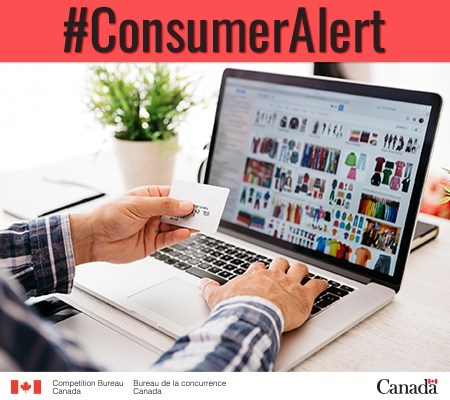“Tick-tock, time is running out! Take advantage of this free trial offer now!” We’ve all seen them: social-media ads that promise to send a free, no-obligation trial product directly to your home for only a small shipping and handling fee. You might be tempted by that free trial of weight-loss pills, muscle-enhancement pills or anti-wrinkle serum, especially if there’s a timer counting down to the end of this “limited time offer”. Step back and set your own clock!
By accepting certain online “trial offers,” you could end up with:

- charges for the full cost of that trial product.
- an unwanted subscription for expensive, monthly products.
- charges for products you’re certain you didn’t order at all!
Here’s how to avoid the free-trial trap:
- Take 5: Wait, even just five minutes, to stop and think before entering your credit card information. Resist high-pressure sales tactics like pop-up surveys, customer queues, or countdown timers. These are designed to discourage you from taking time to fully understand the offer and decide if it’s right for you.
- Be skeptical: Question statements and slogans that seem too good to be true. Don’t take celebrity endorsements at face value. Often, celebrity images are used without consent.
- Find and read the terms and conditions: The terms and conditions might be buried in hard-to-spot, small-font web links or they may not be there at all! They’re even harder to see if you’re viewing the offer on a small screen, like a smartphone or tablet. If you can’t find or understand the terms and conditions, don’t sign up for the trial.
- Beware of added upsell products: Clicking “proceed to checkout” or “complete my order” may automatically add more products to your order. To avoid further charges, look for the fine print.
- Research: Do an online search for the company or product with the words “complaint” and “scam” to help find potential issues. Do some comparison-shopping if the product is available elsewhere.
- Use your browser’s ad blocker: You can use ad blockers to hide social media ads, pop-up surveys and sponsored “news” articles.
If you do sign up for a free trial, protect yourself:
- Keep all receipts, emails and text messages.
- Check your credit card statements regularly for unauthorized charges.
- Know that you can contact your financial institution to request a stop payment because of suspected fraud.
- Remember that there is no shame in being the victim of a scam. Report suspected fraud and help the authorities and others like you.
The Competition Bureau addresses false and misleading conduct in the marketplace. If you believe you have been misled by a free trial offer, contact the Competition Bureau and file a complaint by phone at 1-800-348-5358 or online.
You can also file a complaint with the Canadian Anti-Fraud Centre (CAFC); the Better Business Bureau or your provincial / territorial consumer protection agency.
Related Products
- Canadian Anti-Fraud Centre: Continuity scams
- Consumer Alert: Customer Loyalty Programs: What is your brand loyalty worth?
- Consumer Alert: Online dating – know what you’re signing up for
- Consumer Alert: Pop-up surveys can be a) scams b) traps c) costly?
- The Little Black Book of Scams: 2nd edition
Associated Links
http://www.competitionbureau.gc.ca
Enquiries | Complaints
Stay connected:
Twitter | Facebook | LinkedIn | YouTube | RSS Feed | Email Distribution List
The Competition Bureau, as an independent law enforcement agency, ensures that Canadian businesses and consumers prosper in a competitive and innovative marketplace.
SOURCE Competition Bureau